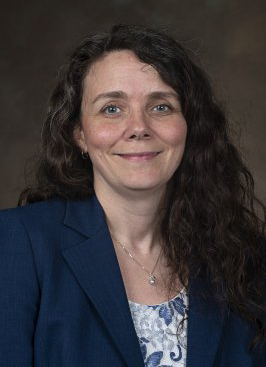As families across the country process the aftermath of the mass shooting at Annunciation Catholic School in Minneapolis, mental health experts say parents play a crucial role in helping children cope with trauma.
Betsy Linnell, an assistant professor of psychology at Cedarville University in Ohio and a licensed professional clinical counselor, said the first step is to help children feel safe while also validating their emotions.
“Research tells us that one caring adult in the life of a child allows them to weather through the worst of adversity,” Linnell said. “Parents should aim to be that supportive figure.”
Linnell said parents should begin by asking children what they already know, since kids often hear fragments of information that may not be accurate. From there, parents can gently guide the conversation and offer reassurance.
“The first thing is to ask them what they’ve heard,” she said. “Starting a conversation where the students are mentally really helps to guide the conversation and begin the healing process.”
To help parents navigate these discussions, Linnell points to what she calls the “Three C’s”: comfort, consistency and communication.
Comfort, she said, can come in small ways — from a hug or laughter to giving a child something familiar to carry, such as a favorite blanket or family photo. Establishing a sense of safety is an essential first step.
Consistency, Linnell added, means keeping family routines and discipline in place, even when parents may feel inclined to ease up.
“Sometimes we want to make exceptions for our children when something bad has happened because we believe this is in their best interest,” she said. “That’s actually more confusing for children. They really need us to be consistent.”
Finally, Linnell emphasized the importance of communication, encouraging parents to keep the door open for ongoing questions or concerns.
“Above all, children need to know they can come to their parents without fear of dismissal,” she said.
More Watch: Betsy Linnell interview with WBNS TV, Columbus, Ohio on August 27, 2025
About Betsy Linnell
Betsy Linnell, a licensed professional clinical counselor with a supervisory endorsement, taught elementary school for seven years and then spent 10 years serving in public mental health, where she specialized in working with children who have experienced loss and trauma. She is frequently called upon to speak and share about trauma and its impact on individuals and has a wealth of clinical knowledge that she uses to teach her courses in counseling.
Linnell earned her bachelor’s degree in elementary education and special education from Cedarville University and a master’s degree in education and allied professions from the University of Dayton.

About Cedarville University
Cedarville University, an evangelical Christian institution in southwest Ohio, offers undergraduate and graduate programs across arts, sciences, and professional fields. With 6,384 students, it ranks among Ohio's largest private universities and is recognized by The Wall Street Journal as being among the nation’s top three evangelical universities. Cedarville is also known for its vibrant Christian community, challenging academics, and high graduation and retention rates. Learn more at cedarville.edu.
